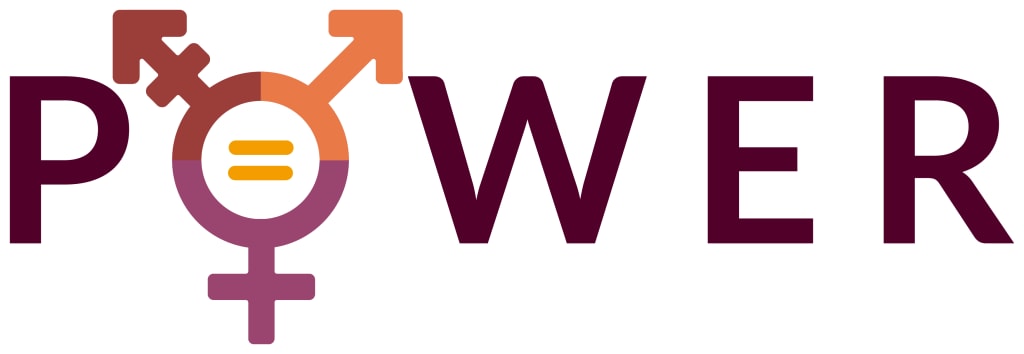Unleashing the Power Within
Exploring the Many Facets of Power

Power is a concept that has shaped societies and influenced individuals throughout history. From the ancient empires to modern democracies, power has played a significant role in determining the course of human affairs. It is a multifaceted phenomenon that manifests in various forms and is subject to interpretation and analysis from different perspectives. In this article, we delve into the concept of power, its sources, its effects, and the ethical considerations that surround its use. By understanding power in all its dimensions, we can navigate its complexities and harness it for positive change.
I. Defining Power (250 words):
Power can be defined as the ability to exert influence or control over others, events, or resources. It is a dynamic force that operates within social, political, economic, and interpersonal realms. Power can be both tangible and intangible, and its manifestations can range from physical strength to intellectual prowess. While power often implies dominance or authority, it can also be collaborative, shared, and mutually beneficial.
II. Sources of Power (300 words):
Power can stem from various sources, and understanding these sources is crucial to comprehending the dynamics at play. Some common sources of power include:
1. Legitimate Power: This type of power is derived from formal positions or authority granted by organizations or institutions. For example, political leaders, CEOs, or judges wield legitimate power.
2. Expert Power: Expertise, knowledge, or skill in a particular domain can confer power. Scientists, doctors, or skilled professionals possess expert power.
3. Coercive Power: Coercive power relies on the ability to enforce compliance through punishment or threats. It is often associated with fear or the use of force.
4. Referent Power: Referent power is based on charisma, attractiveness, or personal qualities that make others want to emulate or identify with the individual possessing this power. Influencers, celebrities, or inspirational leaders often possess referent power.
5. Reward Power: This power is derived from the ability to provide rewards or incentives. Employers, managers, or parents may hold reward power.
III. The Dynamics of Power (400 words):
Power dynamics are complex and can be influenced by various factors, including social structures, cultural norms, and individual motivations. Understanding these dynamics is crucial to addressing issues of inequality, oppression, and abuse of power.
1. Power and Social Structures: Power is intricately linked to social structures and hierarchies. Social, economic, and political systems often perpetuate power imbalances, leading to marginalization and discrimination. Recognizing these structures is essential for promoting social justice and equality.
2. Power and Intersectionality: Intersectionality acknowledges that individuals possess multiple identities (such as gender, race, class, etc.) that intersect and impact their experiences of power. The concept emphasizes the need to consider how different aspects of identity shape power dynamics and influence privilege or oppression.
3. Power and Ethics: The ethical implications of power cannot be overlooked. Power can be used to advance noble causes and effect positive change, but it can also be abused, leading to exploitation and harm. Ethical considerations should guide the responsible use of power, ensuring it aligns with principles of fairness, justice, and human rights.
IV. Empowering Individuals and Communities (400 words):
While power dynamics often perpetuate inequality, there are ways to empower individuals and communities to challenge oppressive systems and effect positive change. Empowerment strategies include:
1. Education and Awareness: Providing access to education and knowledge equips individuals with the tools to navigate power structures, advocate for their rights, and challenge oppressive systems.
2. Building Coalitions and Networks: Collective action and community organizing can amplify voices and create networks of support. By joining forces,
individuals and communities can challenge power imbalances more effectively.
3. Redistributing Power: Empowerment involves redistributing power to marginalized groups and ensuring their meaningful participation in decision-making processes. This can be achieved through inclusive policies, representation, and affirmative action.
4. Developing Leadership Skills: Leadership development programs can equip individuals with the skills and confidence to influence change, promoting a more inclusive and equitable distribution of power.
Conclusion (200 words):
Power is an intricate force that shapes societies and influences individuals. It exists in various forms and can be derived from different sources. Understanding power dynamics and the ethical considerations surrounding its use is essential for promoting social justice and equality. Empowering individuals and communities to challenge oppressive systems and effect positive change is crucial in addressing power imbalances. By fostering education, building networks, redistributing power, and nurturing leadership skills, we can create a more equitable and just world.
Ultimately, power should be wielded responsibly and with a commitment to the common good. Harnessing the power within us and using it to uplift others can lead to a society that thrives on collaboration, empathy, and equal opportunities for all. Let us strive to unleash the power within ourselves and in turn empower those around us, fostering a brighter future for generations to come.





Comments
There are no comments for this story
Be the first to respond and start the conversation.